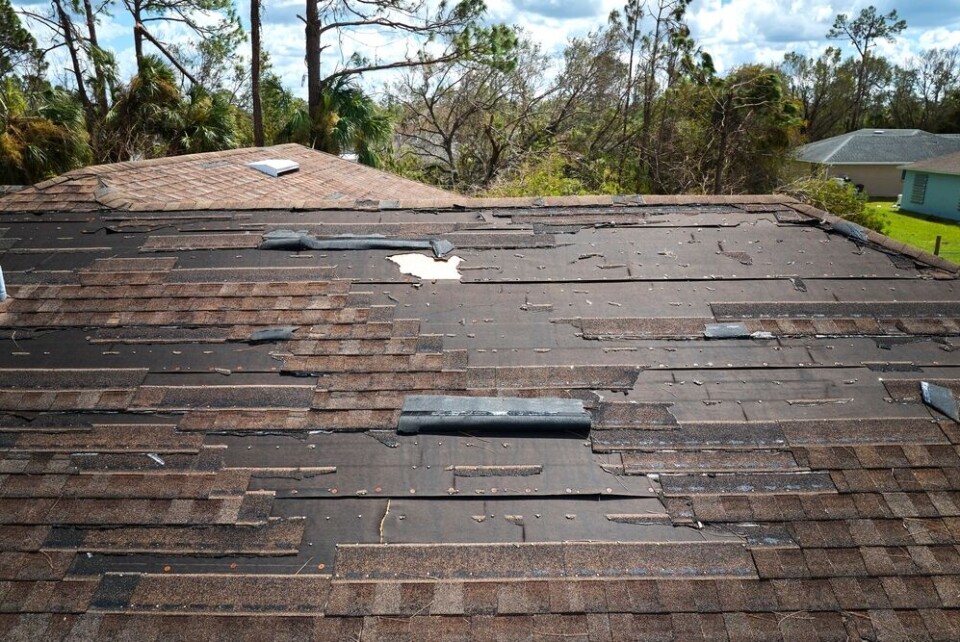-
Residents ordered to stay home due to high risk of avalanche in French Alps
One person has been injured in an avalanche in Val Thorens, while thousands of homes are without power
-
People in France snubbing US travel, report travel agents
The political context, weak euro against the dollar, and border issues have all been blamed
-
François Hollande's call for France to create refugee status for US researchers falls flat
Former president lends support to scheme for scientists reportedly 'forced into exile' by the Trump administration
Watch out for fake officials and aid scams after storms in France
Their aim is to benefit from the damage caused

French storm victims are warned to watch out for fake officials and aid scams, as fraudsters are taking advantage of the situation to trick vulnerable victims.
After the damage suffered to their homes following Storm Ciaran, many victims may respond to tradespeople who come to offer their services. However, unfortunately, there are unscrupulous people taking advantage of others’ misfortune, by selling (and overcharging) for unnecessary or sloppy services.
For example, a fake tradesman (plumbing, pruning, garden cleaning, painting), without a company name on the vehicle, shows up at your door. The "workers" claim to be approved by the town hall.
There are multiple risks here – not only is the quality of their work unproven, but claimants could also work in unsafe conditions and the unfortunate customer could be required to compensate the tradesman in the event of an accident.
Another reason to be wary is that rogue tradespeople often take advantage of the opportunity to overcharge for a service, which would generally cost less and often allows you to benefit from a tax credit when the work is carried out by an approved company.
Read also: West France faces flood alerts: weather outlook for week
Creating damage to be fixed
Not only are scammers taking advantage of damage that has been caused by Storm Ciaran, some have actually been found to be creating the damage themselves.
Police have revealed there have been cases where crooks remove tiles from houses to make it look like wind damage, and then offer to repair the roof.
One such case was reported in Agneaux and another in Saint-Lô, with the police telling people to be vigilant or dial 17 in the event of a scam.
Rather than respond to unexpected visits by tradespeople, it is advised to contact established companies and find out about their reputation
Fake Utility Workers
As well as fake tradesmen, it is important to watch out for fake utility services workers.
If an EDF, Enedis or Orange technician knocks on the door and offers to check the electrical installation or to carry out an intervention on the telephone network, without the customer having been informed beforehand, this is potentially a scam.
Electricity suppliers and operators do not carry out door-to-door canvassing campaigns. A home visit can only be carried out at the request of the customer or the electricity supplier, who informs the customer by email or SMS.
Employees on duty must be identifiable by their company vehicle and carry a business card
The questions to ask
Be wary if a tradesman presents himself as a partner of the town hall or EDF when you have not requested a visit.
In the case of door-to-door canvassing, the direct seller must prove their identity and present a professional card which includes the name and address of the company.
The tradesman should not ask the customer for their bank details, identity papers or operator invoices. In the case of canvassing, it is best to refuse to sign any documents or to hand over money.
In case of doubt, it is advisable to remember to note the registration of the vehicle and to contact your town hall of your home. Any individual or company that is the victim of abusive canvassing can contest the contract and file a complaint with their local gendarmerie or police station.
Read also
Worker dies and widespread damage in France from weekend storms
Advice if home in France is damaged in storm - and what about cars?
























